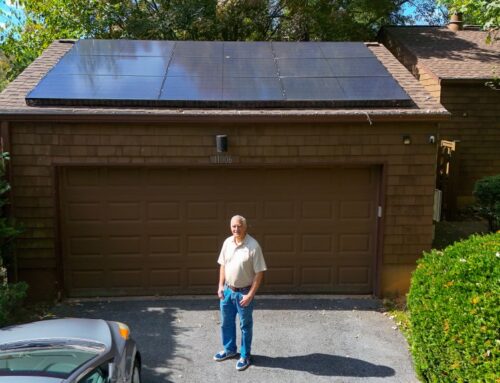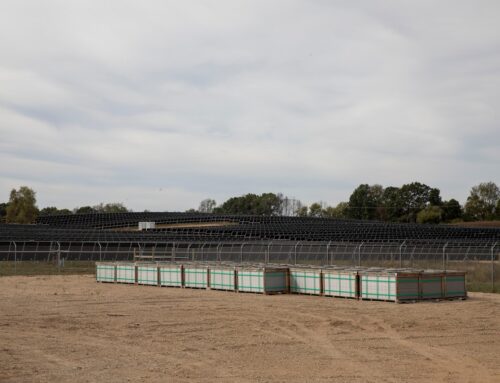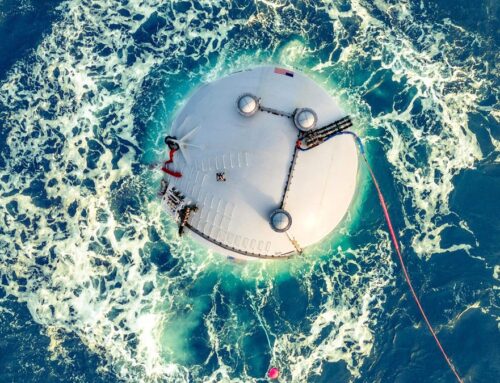Letters: Illinois lawmakers are doubling down on bad green-energy policies
October 5, 2025

When Gov. JB Pritzker and his Democratic supermajority passed the Climate and Equitable Jobs Act (CEJA) bill in 2021, they deceptively promised that Illinois could shut down coal and natural gas plants by a certain deadline and still run its modern economy on nuclear, wind and solar power. Those who opposed CEJA were labeled alarmists.
The Tribune Editorial Board noted a year ago that “just three years later, it appears the alarmists were right, and Pritzker and the green lobby were wrong.”
Although the situation is now dire, Democrats have stunningly responded by doubling down on their bad green-energy policies. State Rep. Jay Hoffman filed HB4116, a massive 822-page energy bill that will require Illinois taxpayers to fund services such as solar installations, electrical vehicle charging stations, “equitable jobs” and grid battery storage.
In May, Republican members of the Illinois House Energy & Environment and Public Utilities Committees called for comprehensive bipartisan energy hearings. Democrats refused to listen. However, in August, Senate Democrats finally called for a hearing. They wanted a platform to pitch their agenda in response to solar companies complaining about the passage of President Donald Trump’s bill that takes away federal subsidies for solar and wind projects.
Other experts testified against the inevitable consequences of CEJA and the newly filed bill as well. Mark Denzler, president of the Illinois Manufacturers’ Association, called for a delay in the shutdown of coal and natural gas plants in Illinois as authorized by CEJA, when adequacy requirements cannot be met. Illinois resident and book author Steve Goreham pointed out that because of the artificial intelligence revolution, many other states are restarting nuclear plants, extending production of coal plants and planning for new natural gas plants. A representative from the power company Ameren noted that 80% of the power it transmits to Illinois is imported from other states. Those power sources are predominately coal and natural gas.
Make no mistake. Fossil fuels are not going away.
HB4116 must be stopped. It allows Springfield to enshrine more reckless energy mandates that would make life harder and could cause more people to leave the state. Springfield politicians should not be allowed to gamble with our power grid based on their ideological experiments.
— State Rep. Brad Halbrook, R-Shelbyville
True costs of fossil fuels
Thanks for the article “Additional federal land opened for coal mining” (in print Sept. 30). There’s a reason coal has declined from 45% to 15% of our energy supply over the last 15 years. It emits a lot more pollution per unit of energy, it’s more expensive than cheaper alternatives such as natural gas and clean renewable energy, and it’s full of nasty hidden costs.
Those hidden costs include ground water contamination from toxic coal ash waste, increased airborne mercury pollution and increased health care costs from trips to the hospital for some of the 40 million Americans with respiratory conditions. But in President Donald Trump’s bizarro-world perspective, it’s better to give away millions of acres of federal lands at bargain prices and $625 million in subsidies to retrofit old plants to create the appearance that coal is a reasonable alternative. And it’s better that public health and safety regulations be relaxed or eliminated to pave the way for coal’s growth, while cleaner, cheaper sources of renewable energy are actively discouraged.
“We the people” need to demand of our officials that fossil fuels be unsubsidized and reflect their true social cost and that the market pick the winners — not the government.
— Andrew Panelli, Homer Glen
Protect state wetlands now
Gov. JB Pritzker has a lot to be proud of. With our governor, Illinois has led in environmental and criminal justice reforms with the passage of the Climate and Equitable Jobs Act (CEJA) and the Safety, Accountability, Fairness and Equity-Today Act (SAFE-T Act).
Illinois now has to catch up to other states in protecting our remaining wetlands, which lost federal protection in 2023 due to a U.S. Supreme Court decision that weakened the Clean Water Act. States such as Colorado, California, New Mexico and Washington moved quickly to protect their wetlands from being plowed over or buried.
The importance of wetlands cannot be overstated. In terms of water protection, filtering, storage and capture; flood management; and carbon capture, wetlands are the hardworking nature-based solution. Wetlands are nature’s sponges that soak up excess water and slowly release water over time, which is important during times of drought.
With increased temperatures and precipitation, Illinois has experienced severe flooding. In July in Chicago, the Garfield Park neighborhood endured nearly 5 inches of rain in just 90 minutes. This level of rain leads to flooded streets and homes, overwhelmed sewers, destruction and high recovery costs. After experiencing extreme flooding in the southern part of the state, some farmers have chosen to retire their farmland or to grow flood-tolerant crops like rice.
Illinois needs to protect our state’s remaining wetlands now from anticipated further weakening of the Clean Water Act by the current administration. Destruction of wetlands decreases the quantity and quality of not only our surface water but ground water as well. With the growth of data centers and the impact on local water supplies, there is currently no real protection for local groundwater, which puts clean drinking water at risk for many communities.
Data shows that people care about clean fresh water. Protecting our remaining wetlands contributes to available clean fresh water, in addition to supporting biodiversity and beauty in nature.
We must save what is remaining. Over 90% of Illinois wetlands have already been lost. To lose what we have left will cost all of us too much.
We need Pritzker to lead in protecting Illinois’ remaining wetlands by helping pass a state bill before it is too late.
— Laura Davis, Inverness
Tech’s threats to our water
While reining in high energy prices is important, let’s not forget water is our most precious resource. The state legislature should most definitely stop Big Tech from taking it.
— Stephen T. White, Buffalo Grove
Factory farms’ conditions
Thank you for printing the commentary before Yom Kippur on the ethics of eating (“This Yom Kippur, let’s reflect on the ethics of eating,” Sept. 30). I surmise that most people do not know or care to know how we get the meat we eat.
It comes from animals in factory settings, where there is no room for a mother animal to lick her newborns. The cage she is in is barely larger than she is. Factory-raised animals endure cruelty at its worst.
Please try to stop eating animals. They are raised in the most awful circumstances. People do not belong in cages, and neither do animals.
I have been a vegan for decades. That leads to health! Animals in cages live under the most cruel circumstances. Yes, let us all reflect on the ethics of eating.
— Janice Gintzler, Crestwood
Argument for vegan diet
Rabbi Shmuly Yanklowitz makes a strong argument for choosing a vegan lifestyle. Happily, today it is easier than ever to choose foods that are kind to animals and the earth. There are starter kits, classes, books and online demonstrations to help anybody move in this direction.
I applaud the rabbi for calling on readers to make compassionate choices. And I applaud the Tribune for sharing his words.
— Patti Breitman, Fairfax, California
Submit a letter, of no more than 400 words, to the editor here or email letters@chicagotribune.com.
RevContent Feed
Search
RECENT PRESS RELEASES
Related Post








